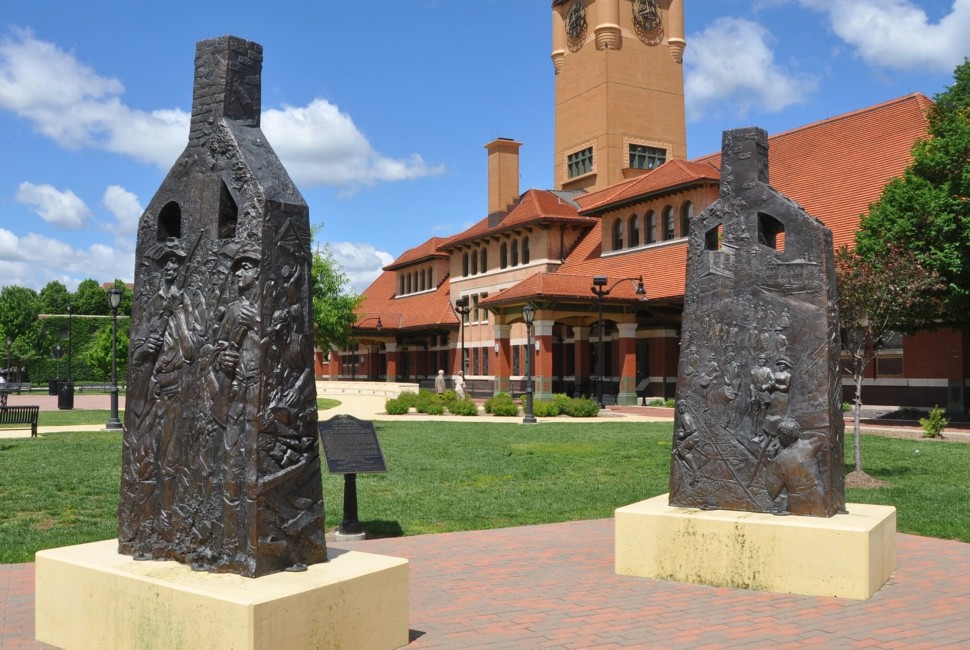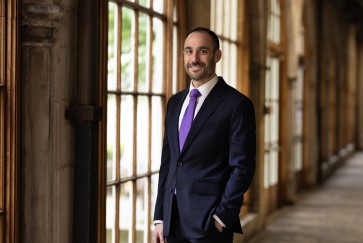One hundred and fifteen years after the execution of Joe James in Springfield, Illinois, lawyers and law students from the Northwestern Pritzker School of Law’s Center on Wrongful Convictions (CWC) in Chicago and Northeastern University School of Law’s Civil Rights and Restorative Justice Project (CRRJ) in Boston have filed a petition seeking a posthumous pardon for Mr. James.
Although he maintained his innocence, James, a Black man, was tried, convicted and executed for the murder of a white man, Clergy Ballard, in Springfield in the immediate aftermath of the Springfield Race Riot of 1908.
The Illinois Prisoner Review Board will hear arguments on James’ petition in Chicago on April 11-13. The board will then make a confidential, non-binding recommendation to Gov. JB Pritzker, who will decide whether to pardon James.
The petition argues that James was denied a fair trial when he was forced to appear before an all-white jury in the same city and county in which, just weeks prior, two Black men had been lynched and hundreds of Black businesses and residences were razed by an angry white mob.
The petition argues Joe James was denied a fair trial due to racial animus following the riot, prejudicial pre-trial publicity and threats of future violence.
Although hundreds of white rioters were indicted for their role in the lynchings and destruction, Sangamon County’s white jurors repeatedly acquitted them despite powerful evidence of their guilt.
After James’ motion to move the trial outside of Sangamon County was denied, he was convicted on the basis of circumstantial evidence by an all-white jury. On October 23, 1908, just over two months after the riot, James was hanged at the Sangamon County Jail.
Northwestern’s CWC and Northeastern’s CRRJ hope that this petition will not only increase public awareness of Springfield, Illinois,’ and America’s history of racial violence, but will also shine a spotlight on James who they view as a casualty of that history.
“James’ factual innocence is not the focus of this petition, because the passage of time and the destruction of evidence have made it impossible to prove conclusively that James was innocent,” said Steve Drizin, co-director of Northwestern’s CWC and a lawyer whose work, alongside his students, has led to more than a dozen exonerations.
Instead, Drizin said, the case rests on two arguments:
First, given the racial animus in Springfield following the riot, the prejudicial pre-trial publicity, which blamed James for the riot, and the threats of future violence if James was not convicted, it was impossible for James to receive a fair trial in Sangamon County.
Second, recent developments suggest that now is the right time for Gov. Pritzker to act. In the past decade, two Illinois governors have issued posthumous pardons.
In 2014, Gov. Pat Quinn pardoned three white abolitionists convicted for helping runaway slaves in the 1840s. In 2019, Gov. Bruce Rauner pardoned Grover Thompson, a Black man wrongfully convicted of murdering a white woman in 1981. Moreover, in recent years, governors across the country have posthumously pardoned Black men whose criminal convictions were tainted by racism during the period after Reconstruction and before the Civil Rights Act of 1964 was enacted.
“Throughout history, we have seen white juries not only convict and execute Black men and women on scant evidence, but acquit whites who murder Black people in the face of overwhelming evidence of guilt,” said Margaret Burnham, University Distinguished Professor of Law, a civil rights lawyer, author and founding director of Northeastern Law’s CRRJ.
“This double standard operated in Springfield in 1908, infecting Springfield’s criminal justice system and depriving James of a fair trial.” Burnham added that the James case “is particularly significant because it played a pivotal role in the formative years of the NAACP.”


